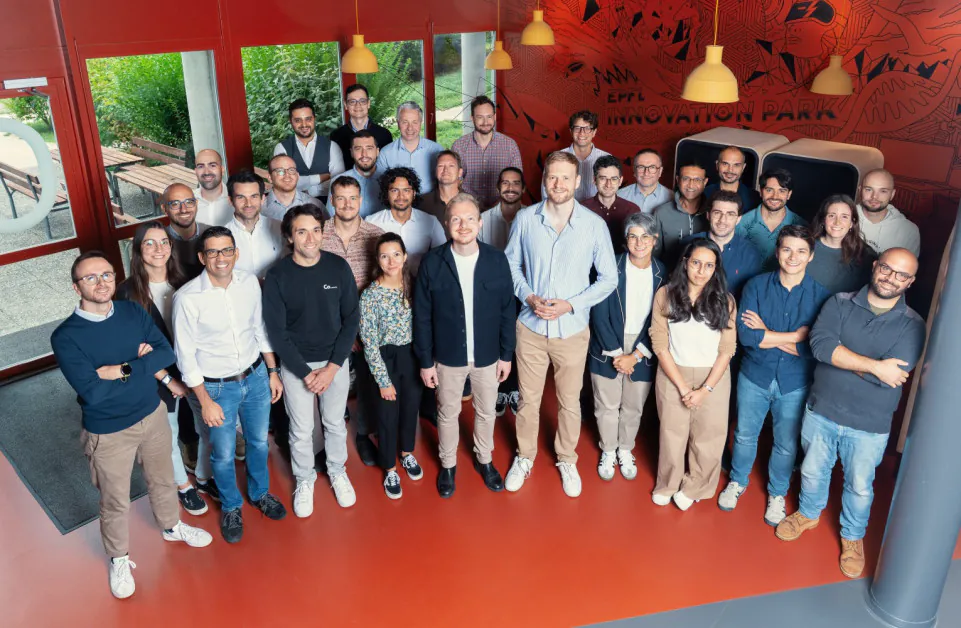Funding
Corintis Raises $24 Million to Solve AI’s Cooling Bottleneck

Corintis, the Swiss semiconductor cooling startup, has raised a $24 million Series A round to accelerate the commercialization of its microfluidic chip-cooling technology. The funding, led by BlueYard Capital with participation from Founderful, Acequia Capital, Celsius Industries, and XTX Ventures, brings the company’s total capital raised to $33.4 million. As part of its expansion, Corintis will open multiple U.S. offices and an engineering hub in Munich, scaling its operations from research to mass production.
The investment comes at a time when data center GPUs are pushing far past traditional limits. Only four years ago, training AI systems on NVIDIA accelerators consumed around 400 watts per chip. Today, the next generation of GPUs and AI accelerators is aiming for power levels approaching 4,000 watts — a tenfold increase that turns cooling into one of the most pressing bottlenecks in the entire industry.
Cooling as the Next Limiter of AI Growth
Data centers already devote a massive share of their energy consumption to cooling infrastructure, with global facilities consuming tens of billions of liters of water annually to keep chips within operational limits. Traditional solutions like air cooling and surface cold plates can no longer keep pace with the intense power densities of modern accelerators. Immersion cooling has been explored as a workaround, but its cost, complexity, and re-engineering requirements make it difficult to scale universally.
This growing crisis highlights why Corintis’ approach is attracting attention. By embedding micro-scale channels directly into or alongside chips, the company can direct coolant exactly to the regions where it is needed most, evacuating heat before it damages performance or reliability.
Microsoft Collaboration and a Threefold Breakthrough
Earlier this year, Corintis and Microsoft announced a breakthrough: by integrating microfluidic cooling into the chip itself, they achieved up to three times the heat removal performance of leading conventional cooling solutions. Tests showed temperature reductions of around 65%, giving chips the thermal headroom to sustain higher performance and potentially enable new three-dimensional architectures that were previously impossible due to heat buildup.
Microsoft engineers emphasized that thermal margins translate directly into software performance, unlocking greater overclocking potential and reducing throttling. This collaboration has positioned Corintis not only as a supplier of cooling solutions but also as a co-designer of future chip architectures.
From Research to Scalable Deployment
Founded on research at the Swiss Federal Institute of Technology in Lausanne (EPFL), Corintis was co-founded by Dr. Remco van Erp (CEO), Sam Harrison (COO), and Professor Elison Matioli (Scientific Adviser). The company has already produced more than ten thousand cooling systems, generating eight-figure cumulative revenue and working with several major American tech companies.
Dr. Remco van Erp, Co-Founder & CEO of Corintis, explained the unique challenge facing his industry:
“Every chip is unique. It’s like a cityscape with hundreds of billions of transistors, connected by countless wires. Cooling today is not adapted to the chip, relying on simplistic designs where several parallel fins are carved into a block of copper with a blade. But just like in nature, the optimal design for each chip is a complex network of precisely shaped micro-scale channels that are adapted to the chip and guide coolant to the most critical regions. Finding the right design per chip to create increasingly better cooling systems under short timelines is a challenge that will only get harder.”
He added that the company’s mission is central to enabling the future of compute:
“Thermal engineers need to pull a rabbit out of a hat on a daily basis to make sure chips don’t overheat and break, and that’s where Corintis comes in. Our mission is to unlock 10x better cooling to enable the future of compute, in a short cycle time, and while leveraging the existing infrastructure investments in a data center today. As our recent collaboration with Microsoft highlights, there’s an industry-wide push to advance the limits of cooling to enable a future of compute that’s not limited by heat.”
With this new round, Corintis plans to scale to over one million microfluidic cold plates annually by 2026. Its team of 55 will expand past 70 by year-end, while its board now includes industry veterans like Lip-Bu Tan, Chairman of Walden International and current Intel CEO, and Geoff Lyon, founder of CoolIT Systems. Their presence signals the critical role Corintis aims to play in bridging chip design, manufacturing, and cooling.
Why This Technology Matters for the Future
The next generation of AI chips will not be limited by transistors or algorithms but by heat. If chips can’t be cooled effectively, they can’t reach their design potential. Corintis’ microfluidic technology reframes cooling as a design feature, not an afterthought — an enabler of performance, density, and sustainability.
If successful, this approach could significantly reduce energy and water use in data centers, open the door to advanced 3D chip stacking, and sustain the exponential growth of AI computation. By turning cooling from a constraint into a catalyst, Corintis could help unlock the next great leap in computing power.












